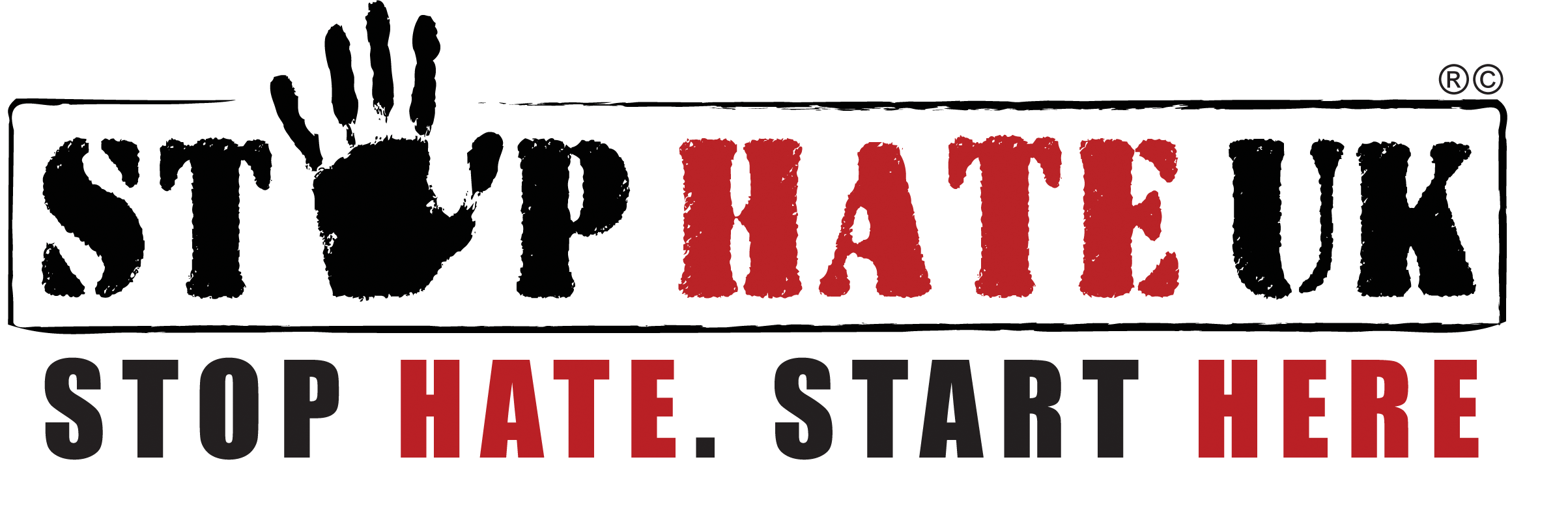News
Stop Hate UK – Comment on 2019-20 Hate Crime Figures
Posted onNational Hate Crime Awareness Week is always a timely reminder of one of the reasons why the week exists, when the annual Home Office Hate Crime statistics are released.
Sadly, but unsurprisingly, this year’s stats show another rise in the overall number of hate crimes recorded by police in England and Wales – to its highest overall number since records began in 2011/12 – with racially motivated offences rising by more than 4,000 in a year.
Official figures show 105,090 hate crimes were recorded in 2019/20, which is a rise of 8%, compared with 97,446 offences in 2018/19.
According to Home Office data, race Hate Crimes accounted for almost three out of four recorded offences (72%), equating to 76,070 offences, a rise of 6% since 2018/19.
It is of particular note that, this year, a separate report has also been published by the government department, looking specifically at the trends during the Coronavirus pandemic, which warned that rises in racially or religiously aggravated Hate Crime in June were a third higher than the previous year and remained high in July.
The provisional findings has suggested that this is “likely to be related to the Black Lives Matter protests and far-right groups’ counter-protests in England and Wales following the killing of George Floyd, in the United States of America, on 25th May 2020.
The main Hate Crime figures also show that offences motivated by sexual orientation, rose by 19% to 15,835 in 2019/20, from 13,314 a year earlier, whilst Transgender identity hate crime went up 16% in the same period, from 2,183 to 2,540, reaching its highest level since records began in 2011/12 (296).
Disability Hate Crime increased by 9% from 7,786 to 8,469, which is also a record high.
The report puts the rise in Hate Crime over the last five years down to “improvements in crime recording by the police” but also recognised that there had been spikes in reports following events like the EU Referendum in 2016 and the 2017 terror attacks.
In fact, the only decrease in Hate Crime incidents, of any kind, occurred in Religious motivations fell by 5%, from a peak of 7,203 the previous year to 6,822 – the first drop since 2012/13, which is actually a surprise to Stop Hate UK, considering the feedback and dialogue we have with many faith groups and is also somewhat at odds with information gathered for the all-party parliamentary group for British Sikhs, organised by the Sikh Federation (UK) and the Sikh Network.
It focused on the network’s new Sikh Manifesto, which reported that anti-Sikh Hate has not been adequately acknowledged by the government and found that the number of crimes reported has risen by 60 per cent in the last 12 months, despite no government support to increase reporting.
Commenting on the Hate Crime figures as a whole our Chief Executive, Rose Simkins, had the following to say; “The rising figures are likely to be a combination of a rise in crimes and a rise in people coming forward to report them.
What we know from talking to people is that many are still not reporting these crimes and these figures still do not represent a true depiction or the scale of the full picture.
Some people call us and say they don’t want to go to the police or think they will be too busy to deal with it, so there are still a lot of people still suffering in silence. We want all those directly and indirectly affected to feel comfortable in reporting Hate Crimes, even if they believe nothing can or will be done because, if anything, it helps us to understand the extent of the problem.”
Rose also added that BAME and LGBT communities, and people with disabilities, in particular, had a ‘right to know’ how big the problem was, saying;
“The increased debate around trans issues and the recent controversy surrounding some ‘high profile’ people’s views on transgender issues, are most certainly contributing factors to the sharp rise in Transphobia, which is very worrying.
It is no huge surprise that racism accounts for almost 75% of offences as, in recent years, it has dominated police and our own reports. Sadly, many people use public debates – such as the discussion around gender identity and the Black Lives Matter movement – to be hostile and say hurtful things.”
It’s also a real worry to Stop Hate UK, that some families have reported that they were actually too scared to sit in their gardens, play with their children outside or put the bins out after experiencing intimidating behaviour from neighbours – and some people have felt unable to escape abuse in areas still subject to lockdown restrictions, which is potentially set to rise again now it looks like a second wave of the pandemic is upon us.
During the initial lockdown (which is the period covered by the separate report) incidents have included verbal slurs, being coughed at in the street and banging on walls or windows, with fears from some that such incidents may have been prompted by a backlash to the Black Lives Matter protests.
In summary, whilst we always welcome the publishing of these ‘official’ statistics and we agree that a certain amount of the increases can be attributed to ‘improvements in Hate Crime recording by the Police’. However, we also know that these numbers do not represent the full picture of the problem of Hate in the UK and that we still have much to do.
We also agree with the Home Office, when they say that “those who commit “hateful attacks should feel the full force of the law”.
To find out more about the work Stop Hate UK do and how you can make a difference, visit www.stophateuk.org or email info@stophateuk.org

